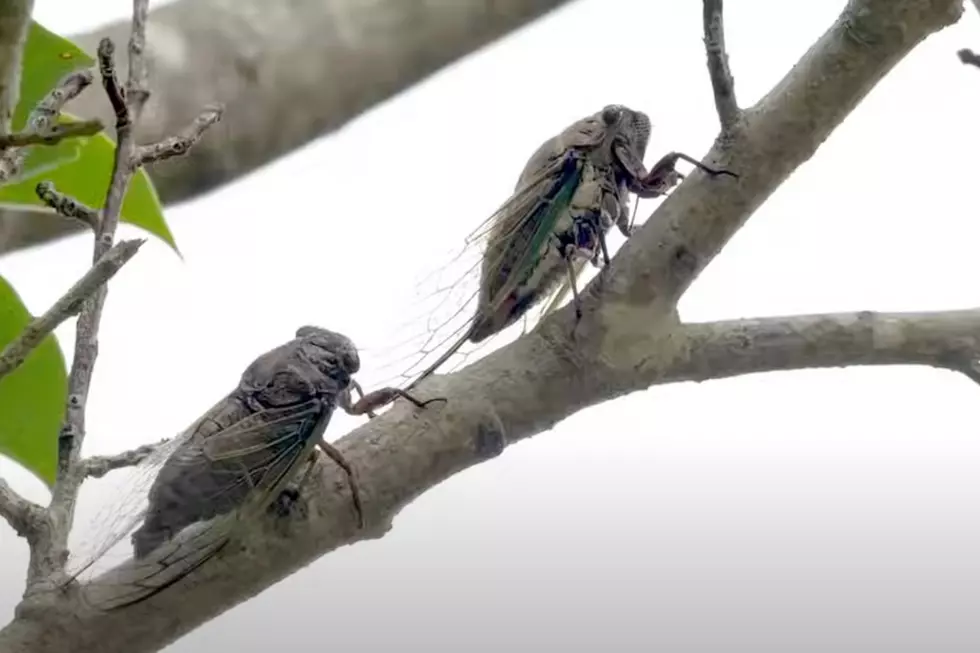
Louisiana Residents Warned to Look Out for Cicada ‘Fluids’ Coming This Summer
Louisiana residents are set for an extraordinary natural event this summer, as trillions (yes, TRILLIONS) of cicadas are set to emerge from the depths of the earth, marking a historical moment that has not occurred since the early 19th century. As the ground temperature hits the 64-degree Fahrenheit mark across the South and Midwest, these creatures will take part in something that has remained unseen in over two centuries—the simultaneous awakening of two separate cicada broods.
This event is especially noteworthy due to the rare synchronization of the 13-year and 17-year life cycle cicadas. The last time this took place was in 1803 and is not expected to happen again until 2245, making this summer of cicadas a pretty epic milestone for enthusiasts and possibly a nuisance for the rest of us for reasons that I will explain shortly.
With this insane number of cicadas surfacing, an unusual warning is on the horizon for the people of Louisiana: be on the lookout for cicada 'fluids'. Researchers, including a team from Georgia Tech who documented this phenomenon, have discovered that these tiny insects, despite their modest size of just two grams, are capable of "jetting fluids through remarkably small orifices" with astonishing speed. Contrary to the slow drip one might expect, cicada urine is expelled with a velocity of up to three meters per second, surpassing even that of larger mammals like elephants and horses in speed.
I simply cannot dance around this. If you're in Louisiana this summer, there is a good chance that you may get peed on by a cicada.
This "rude" cicada behavior is attributed to their diet, which is rich in xylem. The necessity to process and expel vast amounts of this fluid efficiently means that cicadas have evolved this unique jetting mechanism, making slow, droplet-based urination impractical and energetically taxing for them.
So, as the cicada emergence unfolds, Louisiana's residents are advised to be ready for action. If you find yourself on a sunny day feeling a sudden sprinkle, it might just be a cicada high above in the trees, relieving itself. This summer, the awe of witnessing a historic natural event is not enough, as we will now be tasked with dodging cicada 'fluids'—another reason why there is no place quite like Louisiana.
LOOK: Here are the states where you are most likely to hit an animal
Gallery Credit: Dom DiFurio & Jacob Osborn
More From News Talk 96.5 KPEL









